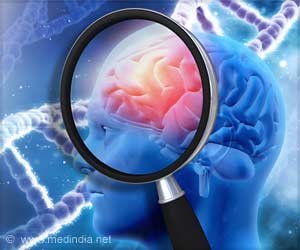
An Estimate of the Number of People with Clinical Depression Eligible for Psilocybin-Assisted Therapy in the United States
Go to source)? Shedding light on this high-stakes inquiry, a first-of-its-kind peer-reviewed study led by researchers at Emory University, the University of Wisconsin-Madison and UC Berkeley, and that will be published in Psychedelics (ISSN: 2997-2671, Genomic Press, New York) has generated initial estimates of the potential demand for psilocybin-assisted therapy for depression in the United States.
‘Could #psilocybin therapy be a game-changer for #depression? If the #FDA approves it, millions of #Americans could benefit from this promising treatment. #mentalhealth #depressiontreatment #depressed’





Psilocybin is a psychoactive compound found in certain mushrooms, commonly known as "magic mushrooms." It interacts with serotonin receptors in the brain, leading to altered states of consciousness, hallucinations, and spiritual experiences. By analyzing national survey data on depression prevalence and treatment in conjunction with the eligibility criteria from recent landmark clinical trials, the researchers determined that between 56% and 62% of patients currently receiving treatment for depression—amounting to a staggering 5.1 to 5.6 million individuals—could qualify for psilocybin therapy if approved.
“This underscores the importance of understanding the practical realities of rolling out this novel treatment on a large scale,” said Syed Fayzan Rab, an Emory MD candidate and the study's lead author.
Millions Could Benefit from Psilocybin Therapy
To arrive at their projections, the researchers first determined that of the nearly 15 million American adults with depression, about 9 million receive treatment in a given year. They then evaluated this population against various eligibility criteria used in recent clinical trials of psilocybin for depression. Their analysis generated a range of estimates: a “lower-bound” of 24% of patients eligible if the strict criteria of initial trials were applied, a “mid-range” of 56% based on criteria likely to be used in real-world medical settings, and an “upper-bound” of 62% after accounting for patients with multiple exclusionary conditions.Notably, nearly a third of the lower-bound to mid-range jump resulted from the inclusion of patients with alcohol and substance use disorders, for whom growing evidence suggests psilocybin may actually be beneficial rather than contraindicated. However, even the 62% upper-bound estimate is likely conservative, as the analysis focused only on currently treated individuals and did not account for the potential influx of new patients drawn by the appeal of psychedelic medicine.
Advertisement
“While our analysis is a crucial first step, we've only scratched the surface in understanding the true public health impact psilocybin therapy may have,” said Dr. Charles Raison, a collaborator on the study and the lead investigator on one of the largest clinical trials looking at the efficacy of psilocybin therapy for depression. "Ultimately, the realizable potential of this treatment rests in the hands of regulatory bodies, policymakers, insurers, and the healthcare community at large. It's our hope that these findings spur productive discussions and proactive preparations to optimize the benefit to patients while minimizing unintended consequences."
Advertisement
Reference:
- An Estimate of the Number of People with Clinical Depression Eligible for Psilocybin-Assisted Therapy in the United States - (https://pp.genomicpress.com/wp-content/uploads/2024/09/PP0025-Rab-2024.pdf)
Source-Eurekalert









